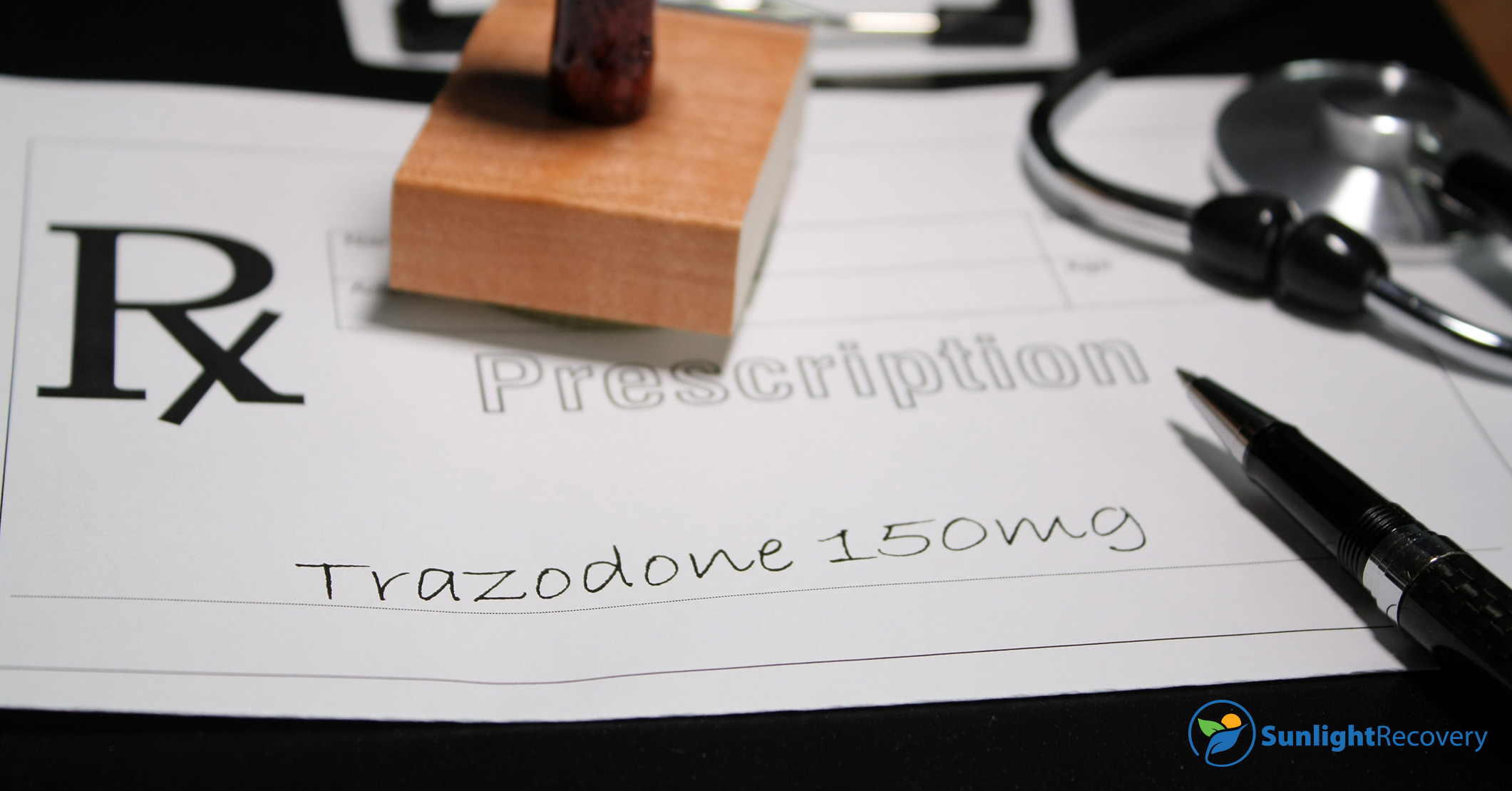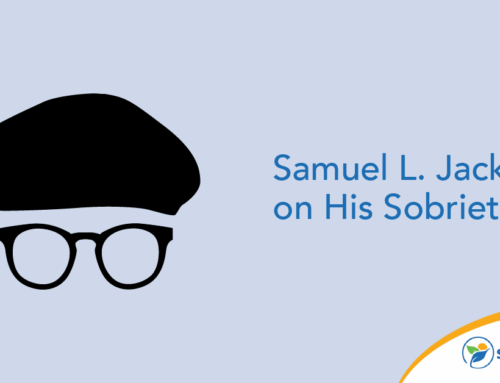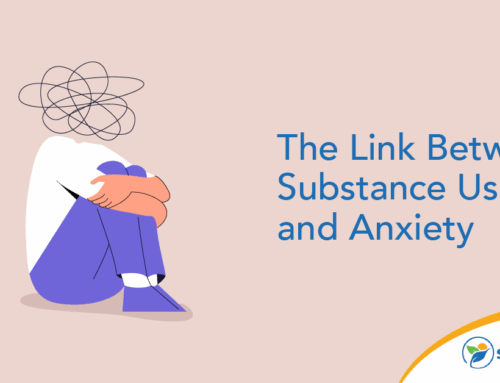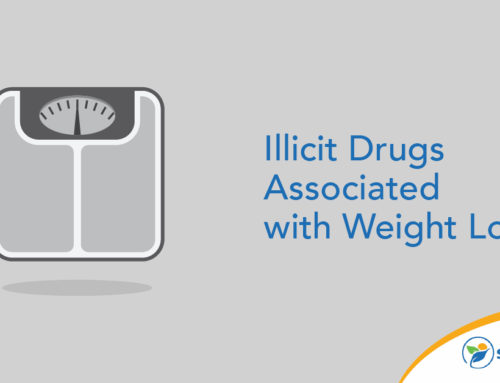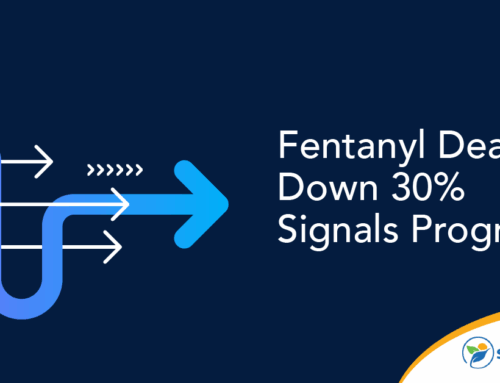If your health care provider prescribes trazodone to help you manage the symptoms of a mental health problem, you may be wondering if your medication will cause side effects. Like all medications, trazodone can cause unwanted symptoms.
However, trazodone side effects are manageable and may even subside once your body adjusts. Below, we’ll explain what to expect when you start taking trazodone and how your provider can help.
Understanding Trazodone and Its Purpose
Trazodone is an antidepressant medication used to treat depression. The medication, which comes in tablets, increases serotonin levels in your brain to help stabilize your moods. Trazodone is available in a generic form and under the brand names Desyrel and Oleptro.
Dosages vary, but health care providers often recommend starting on a low dose and gradually increasing how much you take until you achieve symptom relief. If you suddenly stop your medication, it can cause withdrawal symptoms — look out for a trazodone headache, elevated anxiety and sleep disruptions — so be sure to contact your doctor, as they may tell you to decrease your dose gradually if you want to stop taking trazodone.
While trazodone is most commonly prescribed for people with depression, it may also be used to treat other conditions, including:
- Anxiety
- Schizophrenia
- Alcohol dependence
- Insomnia
Your doctor may also prescribe trazodone to manage the side effects of certain medications; for instance, trazodone can help reduce uncontrollable body movements caused by other prescription drugs.
Common Trazodone Side Effects and Their Impacts
Understanding what to expect when you start taking trazodone can make it easier to manage unwanted symptoms. You’re more likely to experience side effects when you begin taking trazodone for the first time or after changing your dose.
While dealing with side effects can be distressing, you should notice an improvement in your depression symptoms around 1 to 2 weeks after your first dose. Some people experience worsening depression or other mental health symptoms before trazodone starts working. Experts recommend continuing your treatment plan and consulting your health care team if your symptoms don’t improve or become more severe.
The most frequent side effects of trazodone are headache, dizziness, fatigue and feeling sleepier than usual. Other common trazodone side effects include:
- Blurry vision
- Abnormal sweating
- Weakness
- Confusion
- Dry mouth
So, do trazodone side effects go away? Some will naturally ebb as your body gets used to the medication. However, it’s safest to consult your doctor if you notice symptoms while taking trazodone, even if they’re not listed as a side effect. Your health care provider can check for underlying causes and give you tips for managing your symptoms.
Occasionally, trazodone can cause suicidal thoughts and behaviors. The risk is higher in children, teenagers and young adults aged 24 or younger. Doctors don’t typically prescribe trazodone for children unless there’s a clinical reason to recommend it over another medication.
You should seek urgent medical assistance if you or someone you know feels suicidal while taking trazodone. It can also be helpful to educate your friends and family about the potential impacts so they can support you to seek help if necessary.
Lesser-Known Trazodone Side Effects to Watch Out For
Knowing the less common trazodone side effects can help you spot the signs of an adverse reaction. You should call your doctor immediately if you notice any of these symptoms:
- Skin rash, itching or hives
- Bloody stools or vomit
- Visual changes, such as sight loss or seeing rings around lights
- Eye pain
- Fever
- Vomiting
- Muscle stiffness or twitching
- Irritability
- Constipation
- Diarrhea
- Fever
Changes to your heartbeat, being unable to urinate or the yellowing of your eyes or skin are serious side effects and require urgent care. While these side effects can seem alarming if you’re considering taking trazodone, they only affect around 0.01% of patients.
Occasionally, people have allergic reactions to trazodone. Signs of an allergic reaction include a swollen mouth and tongue, tightness in the throat and blue or gray skin. An allergic reaction is a medical emergency and requires hospital treatment, so you should call 911 if you develop any of these symptoms.
You should also look out for specific trazodone side effects in males. Some men develop priapism while taking trazodone, which means an erection lasting several hours (usually 4 hours or longer). Priapism is often painful and can occur even if you’re not engaged in sexual activity. Without treatment, the condition can cause permanent tissue damage, so it’s important to seek urgent care if you experience it. You’re more likely to develop trazodone-related priapism if you have certain health conditions, including leukemia, sickle cell anemia or an anatomical problem with your penis.
Managing Trazodone Side Effects: Tips and Strategies
While you should always discuss adverse symptoms with your doctor, experiencing side effects doesn’t necessarily mean your treatment plan is wrong. Fortunately, several self-help methods can help you manage trazodone headaches and other side effects.
Certain health conditions can make side effects more likely, so it’s a good idea to tell your doctor if you have any other illnesses — even if you don’t think they’re relevant. Your provider can use this information to determine whether trazodone is right for you.
Lubricating eye drops can help reduce discomfort if you have dry eyes, and your eye doctor can recommend other treatments to manage dryness. Try chewing sugar-free gum to encourage your body to produce more saliva if you’re experiencing a dry mouth. Staying well-hydrated can also help minimize eye and mouth dryness and may reduce your risk of headaches.
Drinking alcohol while taking trazodone can increase your chance of experiencing headaches, dizziness or drowsiness. Therefore, you may wish to consider reducing your alcohol intake or stopping drinking altogether.
Drowsiness and fatigue often improve when your body adjusts to trazodone. If your tiredness persists, your doctor may recommend changing the time you take your medication. For example, some people find these symptoms easier to manage when they take their medication in the evenings. Avoiding driving and using machinery is wise until your fatigue is under control.
Get Compassionate Help Today
You don’t have to face depression and other mental health concerns alone. If you’re concerned about symptoms of mental illness in yourself or someone you know, the team at Sunlight Recovery is on hand to provide compassionate support and treatment. Contact us today to explore your treatment options and start your road to a happier, healthier life.


